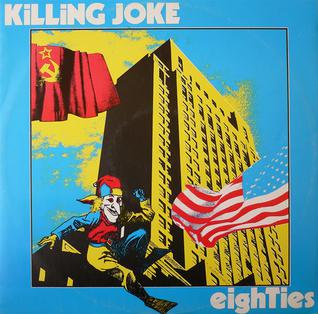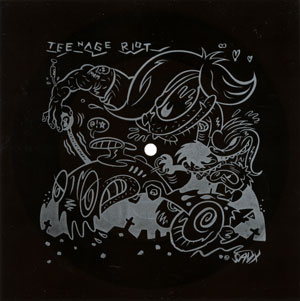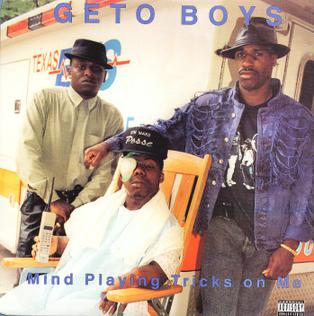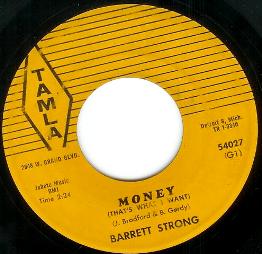Artist: Deadboy And The Elephantmen
Song: "Stop, I'm Already Dead"
Album:
We Are Night Sky
Year: 2005
CLICK HERE TO LISTEN (will open in new tab)
In an era where a majority of music comes off as embarrassingly disingenuous and annoyingly artificial, it is understandable that many have lost faith in the continued existence of "real" music. As the major labels and mass media push more and more sub-par music onto the masses, one is forced to dig deeper and rally behind the few groups that prove the presence of truly talented and inspiring musicians. Thankfully, there are a handful of record labels that consistently produce such acts, and few are better at finding these bands than Mississippi-based Fat Possum Records. Whether it's
The Black Keys, Bob Log III, or a number of other groups, the label is unquestionably one of the finest today, and few acts on that label showed more promise than the short-lived project, Deadboy And The Elephantmen. Though it is arguably their second full length album, many saw 2005's
We Are Night Sky as the groups' debut, yet whichever way one sees it, it is impossible to deny the musical brilliance on display throughout the record. Combining an overall dark, almost haunting mood with an attack and distortion that is absolutely perfect, the album remains one of the finest and most refreshing musical efforts in recent history, and it served as the introduction of
Dax Riggs to many music fans. Though every track on the album is fantastic, the essence of the group can be heard clearly within Deadboy And The Elephantmen's 2005 song, "Stop, I'm Already Dead."
As the song opens, the mood for both the song and album are immediately set into place, as there is a somber, yet almost nervous energy created by the lone guitar and dual vocals of Dax Riggs and Tessie Brunet. The guitar seems to be the source of the mood, as it feel as if it is ready to lash out and attack at any moment. The fact that such mood is able to be conveyed through a simple, unassuming progression is the perfect example of the overall ability of Deadboy And The Elephantmen, and this minimalist approach is where one can see close ties to the punk rock ethos. However, "Stop, I'm Already Dead" quickly drops into an all-out rock and roll masterpiece, and the heavy drumming becomes just as essential to the feel of the song as the guitar work. During the latter half of the song, this cadence becomes far more present, and the sharp stutter that the song creates is as heavy metal as it is punk, and it is this combination of sounds that makes both the song and band so uniquely brilliant. It is also in the simple combination of instrumentation where one can hear the fantastic chemistry between Riggs and Brunet, and while many other acts at the time were attempting to play the "lo fi" or "garage" sound, it is "Stop, I'm Already Dead" that unquestionably sets the standard. The difference here is that along with having a far more authentic punch and grind than the "major label" acts they can be compared to, "Stop, I'm Already Dead" is amazingly catchy, and this is the final element that sets the band far above their peers.
Along with showing a unique musical rapport through their playing, Riggs and Brunet also share a fantastic chemistry within their vocal performances. Both bringing distinctive voices, the way in which they blend together gives "Stop, "I'm Already Dead" a amazing depth, and this is highlighted in the emotion conveyed in the songs' opening. With nothing to hide their singing, there is an almost tragic beauty within this portion of the song, and there the vocals often come off as detached, which manages to work perfectly with the overall feel of the song. After the main musical portion kicks in, Riggs takes center stage, and the energy and attitude with which he sings is absolutely mesmerizing, often mimicking the staggered feel of the drumming. Holding nothing back, the raw, almost unhinged sound in his voice echoes back to the likes of
Iggy Pop among others, and it is the somehow gentle ferocity in his voice that makes it unforgettable. Along with the way he sings, the lyrics on "Stop, I'm Already Dead" perfectly reflect the overall mood of the song, and it is these uniquely dark lyrics that would prove to be a trademark of Riggs' music. When he delivers lines like, "... heaven's on one shoulder, but baby hell is on the other...," Riggs injects an almost gothic element into the song, yet it brings this mood in a completely original manner, and it is both the lyrics as well as his overall attitude that makes "Stop, I'm Already Dead" such an enjoyably unique musical experience.
Even as amazing as the overall end-product stands, Deadboy And The Elephantmen remains one of many bands that one wished would have created more music. While there are a number of studio outtakes and a second LP, shortly after the release of
We Are Night Sky, Riggs rearranged his band and began releasing music under his own name. The similarity between the lineups is clear, and yet there is something one can only find within the Deadboy And The Elephantmen recordings that makes one yearn for more. Throughout
We Are Night Sky, the duo deploy their mood across a number of styles, and even in the more reserved, quieter moments on the record, the overall level of talent within the group is more than obvious. It is perhaps the fact that they are able to retain this mood across so many styles that proves just how superior they were to their contemporaries, and also why the album remains proof that "true" rock music is not a thing of the past. Serving as one of the finest opening tracks in history, "Stop, I'm Already Dead" is everything one can hope for in a rock song, from the heavy guitar work to the aggressive drumming to the almost chaotic energy in the vocals. The way in which these elements are all brought together is what defines the band, and there are few songs of the past decades that can compare to the brilliant sound and energy one finds on Deadboy And The Elephantmen's 2005 song, "Stop, I'm Already Dead."














